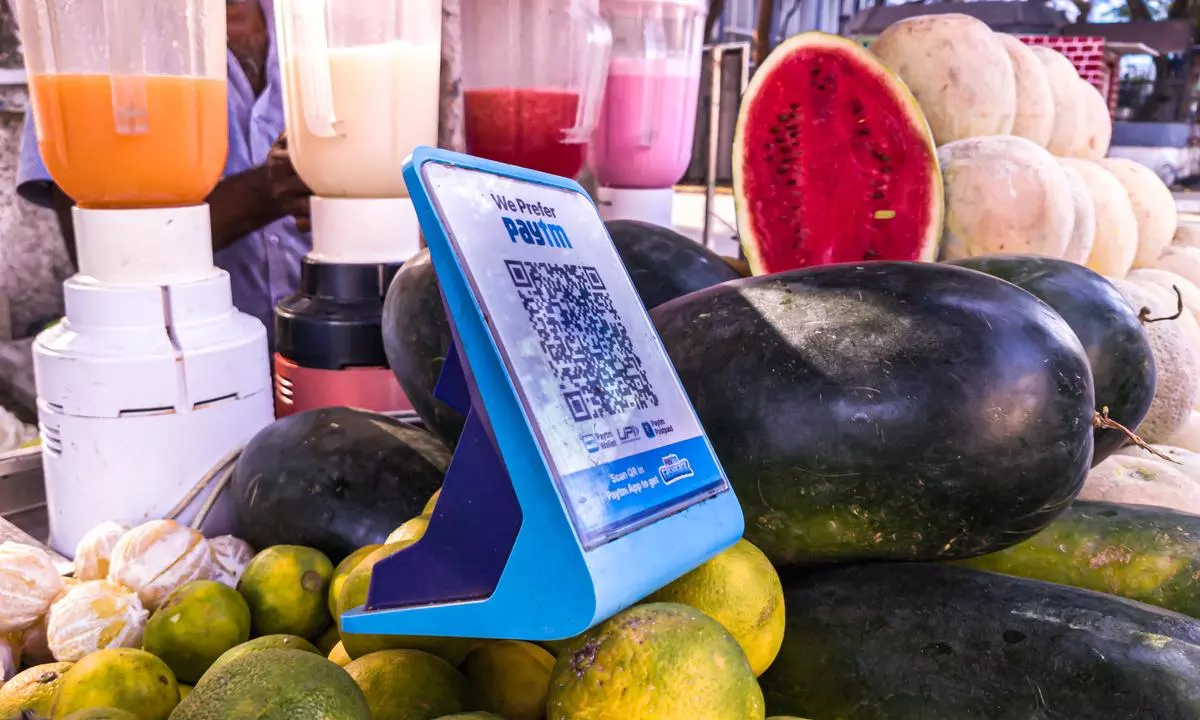
- Home
- News
- Analysis
- States
- Perspective
- Videos
- Education
- Entertainment
- Elections
- World Cup 2023
- Features
- Health
- Business
- Series
- Economy Series
- Earth Day
- Kashmir’s Frozen Turbulence
- India@75
- The legend of Ramjanmabhoomi
- Liberalisation@30
- How to tame a dragon
- Celebrating biodiversity
- Farm Matters
- 50 days of solitude
- Bringing Migrants Home
- Budget 2020
- Jharkhand Votes
- The Federal Investigates
- The Federal Impact
- Vanishing Sand
- Gandhi @ 150
- Andhra Today
- Field report
- Operation Gulmarg
- Pandemic @1 Mn in India
- The Federal Year-End
- The Zero Year
- Premium
- Science
- Brand studio
- Home
- NewsNews
- Analysis
- StatesStates
- PerspectivePerspective
- VideosVideos
- Entertainment
- ElectionsElections
- Sports
- Loading...
Sports - Features
- BusinessBusiness
- Premium
- Loading...
Premium

Disciplinary action did begin in 2022; yet, RBI is not entirely blameless, for regulation of the ecosystem has stripped any revenue from the payment process
A group of 12 fintech entrepreneurs have written to the government, protesting against the RBI's "current, seemingly punitive, regulations levied against Paytm Payments Bank”, according to a MoneyControl report. These founders are all gentlemen but invite the comment that the lady doth protest too much.
Ask not what the RBI is doing to squeeze Paytm's business, ask what would happen if the regulator of the financial sector were to let blatant violation of the norms it has put in place for the safety of consumers and the integrity of the financial system itself go unchecked.
Patting your pet dog, who thinks he is the Alpha of the family and bares his teeth whenever you try to make him do something against his will, is a whole lot more congenial than training him to obey commands – until he bites the neighbour’s visiting niece.
All that RBI did
All the RBI has done is to suspend Paytm Payment Bank’s operations. It has not closed down Paytm the fintech.
Paytm can continue to operate the payment window. The only difference is that the merchant account, in which the transferred money goes, can no longer be with the Paytm Payment Bank. The company can switch its customers to another bank to receive payments. It can still remain a big facilitator of payments on the UPI platform.
Further, Paytm can focus its energies on sorting out its compliance problems. It enjoys considerable goodwill and market presence.
What the company needs is effective damage control, going beyond mobilizing rudalis (professional mourners, who do the job for grieving relatives too pre-occupied to cry enough in public to pass the scrutiny of crones hovering over any tragedy to see how deeply the departed are really missed).
A long rope
'Move fast and break things' is a good philosophy for technology innovators in a great many areas of the human experience, but not when it comes to healthcare or money. The potential for harm far exceeds the potential benefit for the entrepreneur when the sonic boom of app development frenzy shatters chunks of these sectors.
The RBI has given Paytm a long rope. Early disciplinary action took place in 2022. Warnings have continued since then.
If the Paytm founder imagines his use of the Prime Minister’s smiling face on his advertisements post-demonetisation makes him immune to the financial sector regulators’ regulatory reach, he does a disservice to himself, the political leadership and the regulatory authorities.
RBI not blameless
But it is not the case that the RBI is entirely blameless. Financial regulation of the payment ecosystem has stripped any revenue from the process of payment. Payment is transferred using the National Payment Corporation of India’s (NPCI) financial switch, of funds from the payer’s account to the recipient’s bank account linked to the QR code of the recipient app.
In the case of merchants, these merchant accounts operated by the payment company can be further linked to the regular bank accounts of the merchant. Small traders and individuals receive their funds straight into their bank accounts.
These payments are now free, by fiat, when below Rs 2,500 per transaction. Ideally, the payment app and the NPCI should get a tiny flat fee or a sliver of the transaction amount as compensation for their job.
Payment wallets
Transfers out of payment wallets now attract a charge, which discourages the use of payment wallets, encouraging people to move money from their bank accounts to recipient bank accounts straight.
These regulatory interventions have created a situation in which a payment app can make money only from the ‘float’ it enjoys from the temporary accrual of huge amounts in the accounts linked to merchant QR codes.
If these accounts are, as in the case of Paytm before the cessation of operations of its payments bank, in the app operator’s payments bank, there is some more flexibility to make money from this float.
Pay Later accounts
This is wrong. The payment ecosystem deserves to be remunerated for its service of facilitating the payment.
Credit card companies earn as much as 2 per cent as their merchant discount rate. That is excessive, and will not last long, once banks start using their 'Pay Later' accounts linked to UPI to offer consumers the same feature of credit for a month or so that credit cards offer. There is no reason why Pay Later accounts should not eventually wipe out credit cards altogether.
There is no need to burden the small payments with the fee for facilitating them. This should be paid by banks, the RBI and the government – three major big beneficiaries of payments going digital. The less the cash used in public life, the less the RBI has to spend on printing money, transporting it around the country, and replacing notes when they wear out.
Banks reduce the use of bank branches, ATMs and human tellers when the use of cash goes down. Banks and the RBI make big on money production, money transport and money handling, from increased usage of payment apps.
Go ahead, RBI
The government gains via transparency. Every digital payment leaves a machine-trackable and, increasingly, machine-analysable audit trail. Combined with GST, formalised payments enable the government to minimise tax evasion.
The government, the RBI and the banks should use a fraction of the additional revenue/savings they derive from payments switching from cash to digital to compensate the payment ecosystem for their job of enabling digital payments. This would reduce the incentive to play around with the customer money that comes into the payment ecosystem for brief periods.
The RBI should make this reform, and go boldly ahead with the job of disciplining payment apps like Paytm.(The Federal seeks to present views and opinions from all sides of the spectrum. The information, ideas or opinions in the article are of the author and do not necessarily reflect the views of The Federal.)



